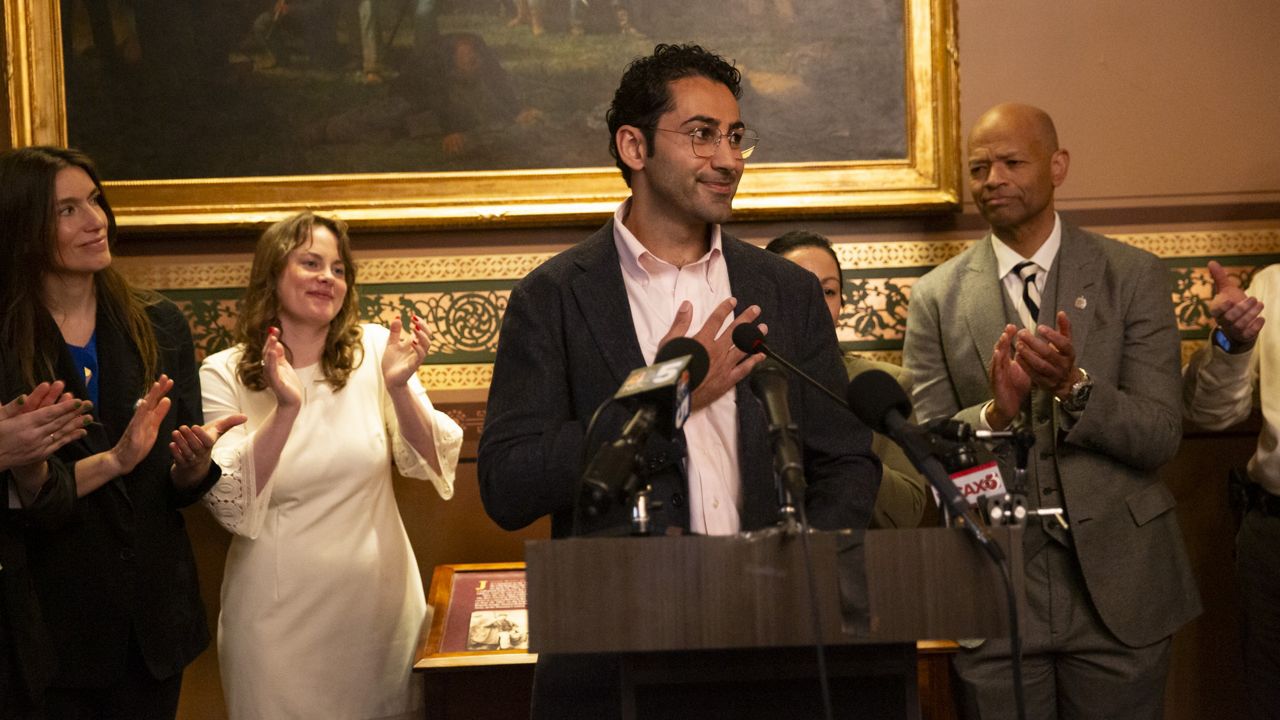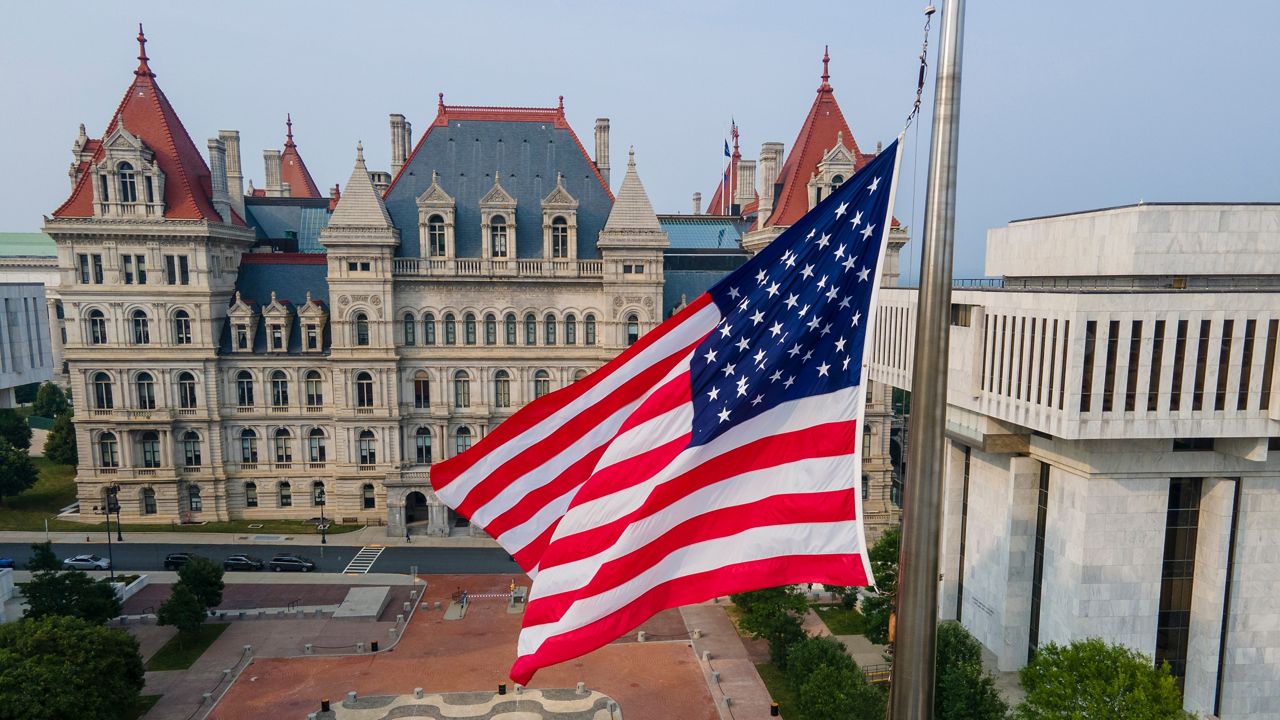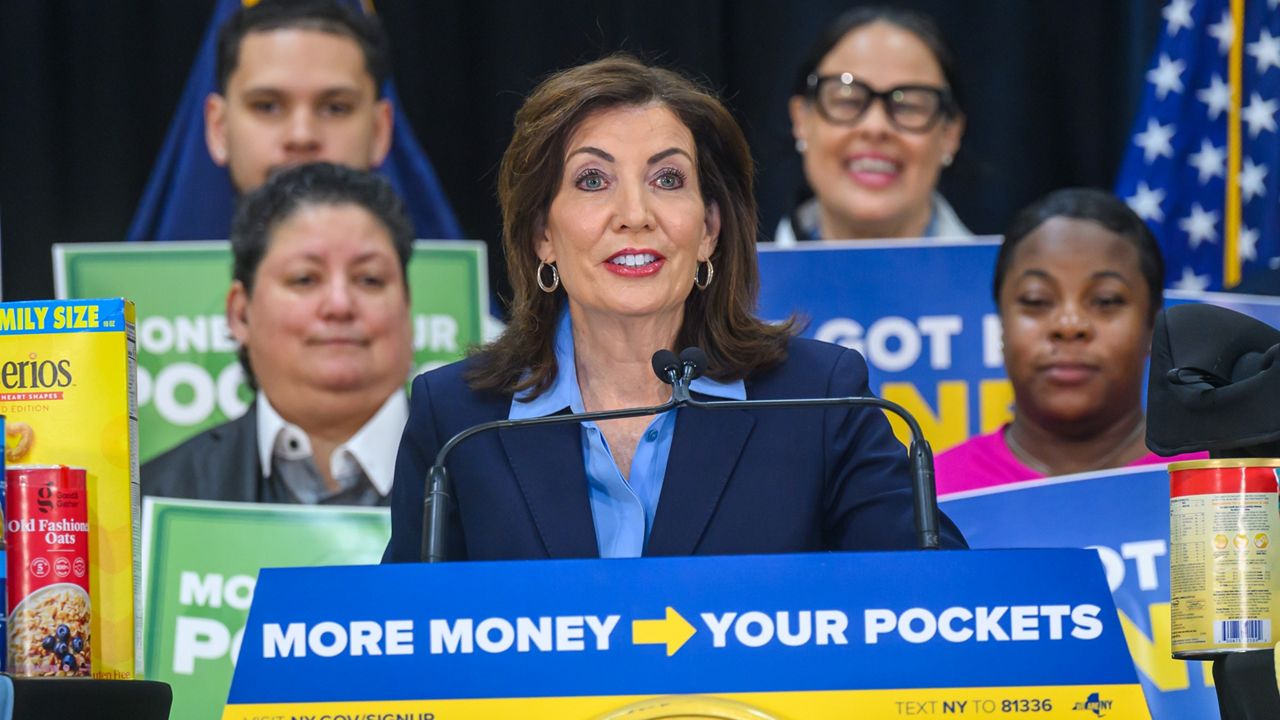The city has launched a five-borough operation aimed at shutting down unlicensed cannabis shops.
The initiative, known as “Operation Padlock to Protect,” officially kicked off Tuesday. Measures included in last month’s state budget allow both the state Office of Cannabis Management and localities to shut down illicit shops for up to a year.
What You Need To Know
- The city has launched a five-borough operation, known as "Operation Padlock to Protect," aimed at shutting down unlicensed cannabis shops
- Measures included in last month’s state budget allow both the state Office of Cannabis Management and localities to shut down illicit shops for up to a year
- A cohort of law enforcement agencies including the New York City Sheriff’s Office and the NYPD executed search warrants at 20 different smoke shop locations across the five boroughs this week
Mayor Eric Adams said the efforts will ramp up in the coming weeks. In Lower Manhattan, the operation was already in full effect Tuesday.
New York City Sheriff Anthony Miranda said New City Smoke Shop, at the corner of Church Street and Park Place, was caught selling unlicensed cannabis, cigarettes and mushrooms.
Now, it has been shut down for good, thanks to the new enforcement authorization.
A cohort of law enforcement agencies including the New York City Sheriff’s Office and the NYPD executed search warrants at 20 different smoke shop locations across the five boroughs, authorities said.
“We took a lot of products in the store,” Miranda said. “When we started, all those shelves were filled with products. By the time we leave this location, all those shelves will be empty of the products we see."
Before the city was granted municipal enforcement powers against unlicensed smoke and cannabis shops, the Adams administration said local agencies did everything in their power to crack down on illegal shops, including issuing summonses, seizing illegal product, conducting inspections and imposing penalties.
Additionally, 603 landlords and owners of buildings across the five boroughs were issued notices that they could be legally liable for the continued unlicensed sale of cannabis or tobacco products by their tenants.
“Our message is clear: We want to close them down, and if you are out there, we have a lock with your name on it,” Adams said.
If a business is padlocked as a result of an inspection finding illegal product, business owners can apply with the Office of Administrative Trials and Hearings to reopen after a certain period of time, though they would have to show they are no longer selling illegal product.







_DNT_Columbia_Protest_CLEAN_FOR_APPROVAL)